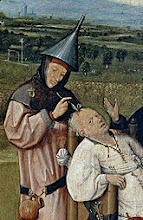When a man's father dies, regardless of the time or space between them, the man is left unprotected and conspicuous, with the Powers That Be, (Hap itself, perhaps) staring down at him mightily. When a man's father dies, what was assumed (and even that is too active a verb) to be an eternal buffer is removed, replaced with eternity itself.
When my own father passed, I wrote the following to someone who might understand:
"There are strikingly, disconcertingly few with whom I will share, but it might seem strange, later, were I to have failed to mention it. My father died yesterday. A scan on Friday, ordered due to breathing difficulties, revealed lung cancer that had already spread to his brain. Being who he is (or was, or will be, if you believe in that sort of thing), by noon Sunday he had negotiated a removal of the breathing tube. Even in the dimished state he had inhabited for the past decade, he was likely more lucid than you or I will ever be. Apparently he even made the obligatory jokes with the doctors. He passed in the late afternoon. He chose cremation; no ceremony will follow.
"No response is sought here. I needed to write this down for it to become concrete: my father has died (and, as is the case with sons, I am next; no buffer remains). You knew him--I do not say that you liked him or he, you, necessarily--and knew him at a time of his full capacities, for good or ill or both."
Monday, May 14, 2007
Subscribe to:
Post Comments (Atom)

No comments:
Post a Comment